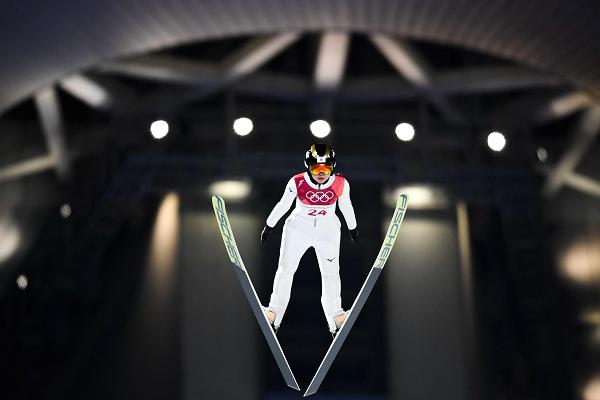
Jonathan Nackstrand | Getty Images
Japan’s Yuka Seto competes in the women’s normal hill individual ski jumping event during the Pyeongchang 2018 Winter Olympic Games.
But losing sleep comes at a cost. When you’re asleep, your lymphatic system removes toxins from your blood throughout your body, while cerebral fluid removes them from your brain. Without that rejuvenation process, it becomes harder to focus and remember.
According to one study, going extensive periods of time without sleep is like being under the influence of alcohol, which can explain the National Sleep Foundation’s estimate that 100,000 car crashes a year are caused by fatigued drivers.
That’s why most Olympians arrived in Pyeongchang weeks before the games began, in order to acclimate to the time change and compete with clear heads.
And other extreme athletes who have to overcome natural inhibitions still hold accept the conventional wisdom that getting enough sleep is key. Ski racers, for instance, reach speeds of 95 miles per hour as they carve down the mountain, and Mikaela Shiffrin, who some expect to take home a few Alpine gold medals this Olympics, told the New Yorker that she gets nine hours of sleep a night and naps at least one hour a day.
Snowboarders appear to be loading up on shut-eye as well. The morning of Red Gerard’s gold-medal-winning run, the 17-year-old reportedly overslept.
 EU News Digest Latest News & Updates
EU News Digest Latest News & Updates



